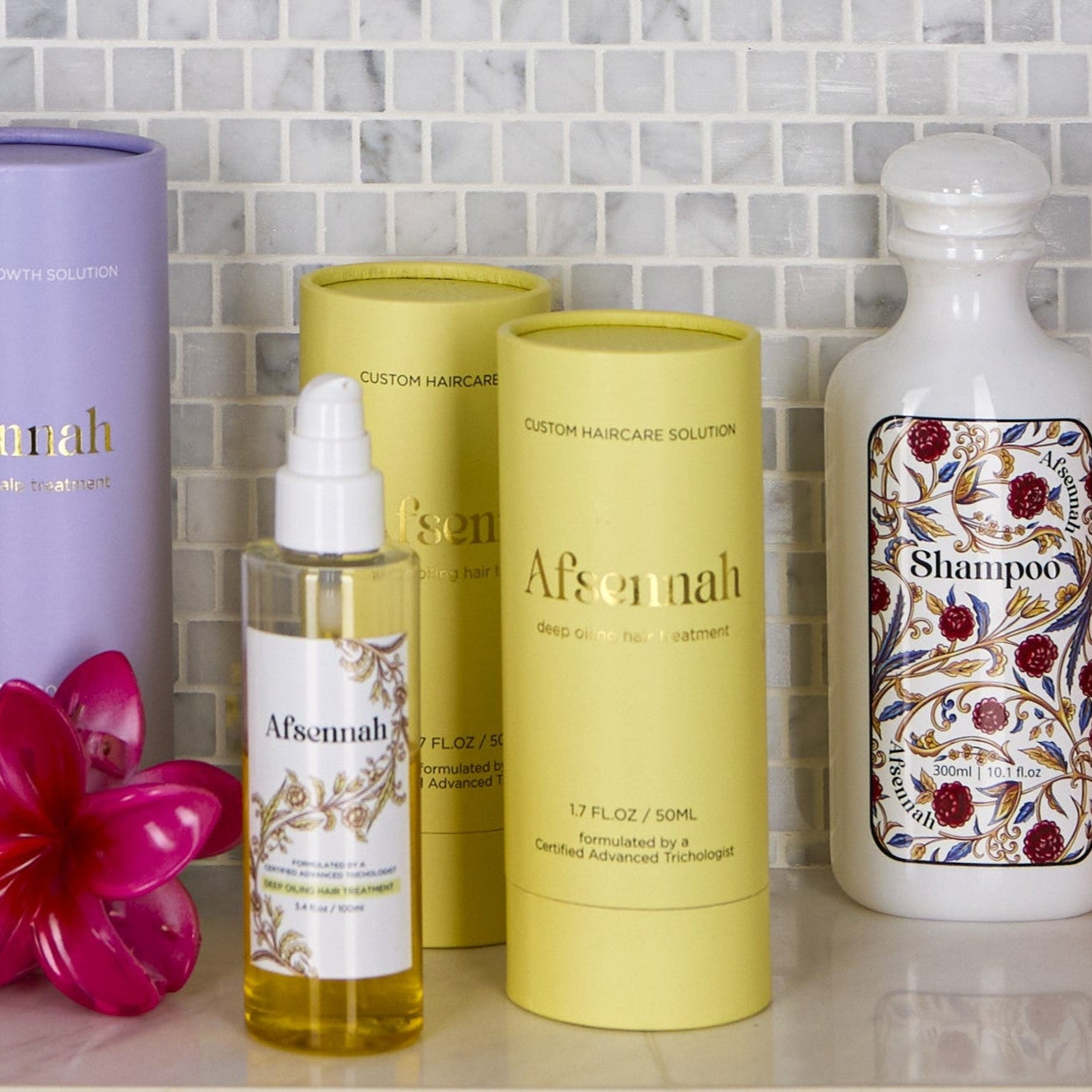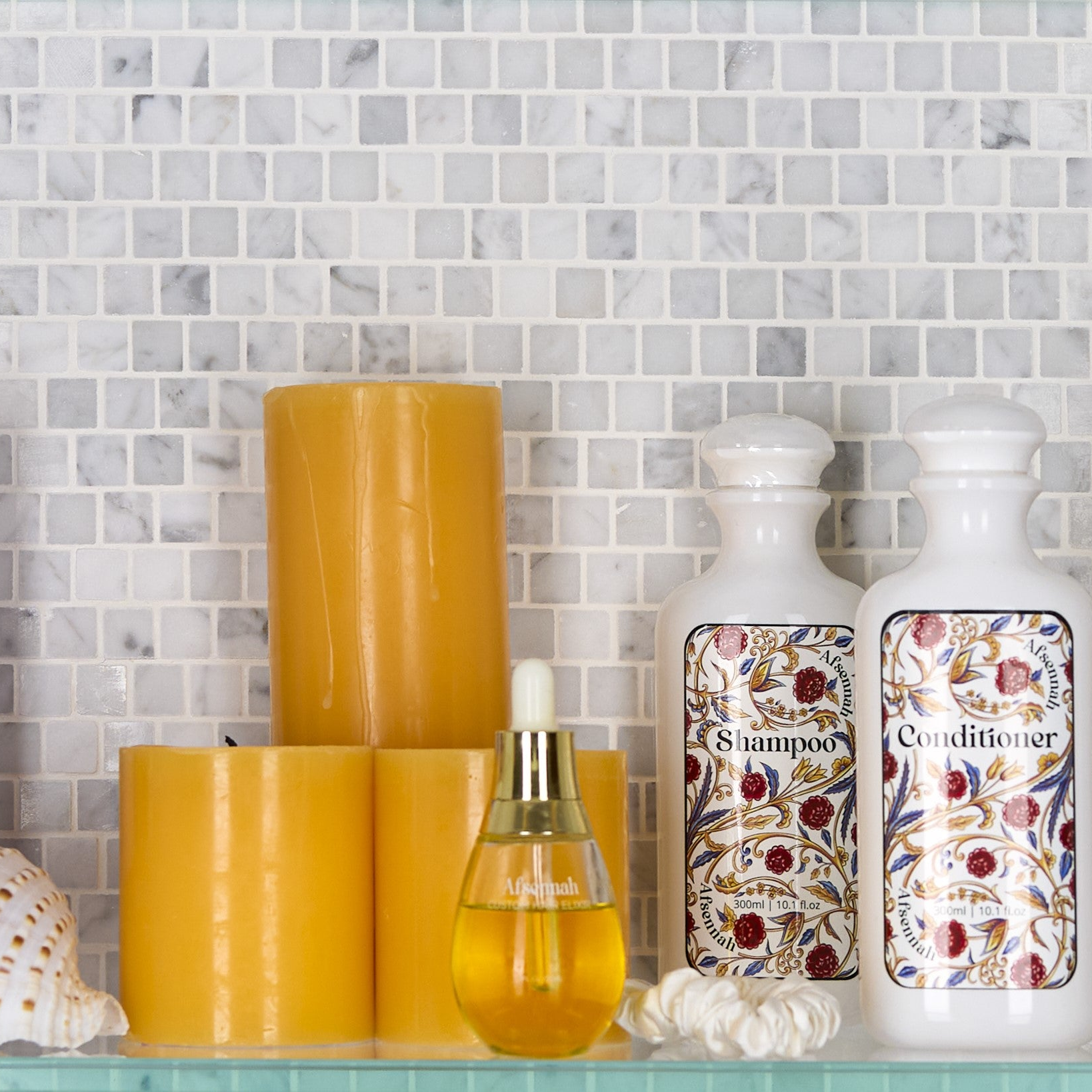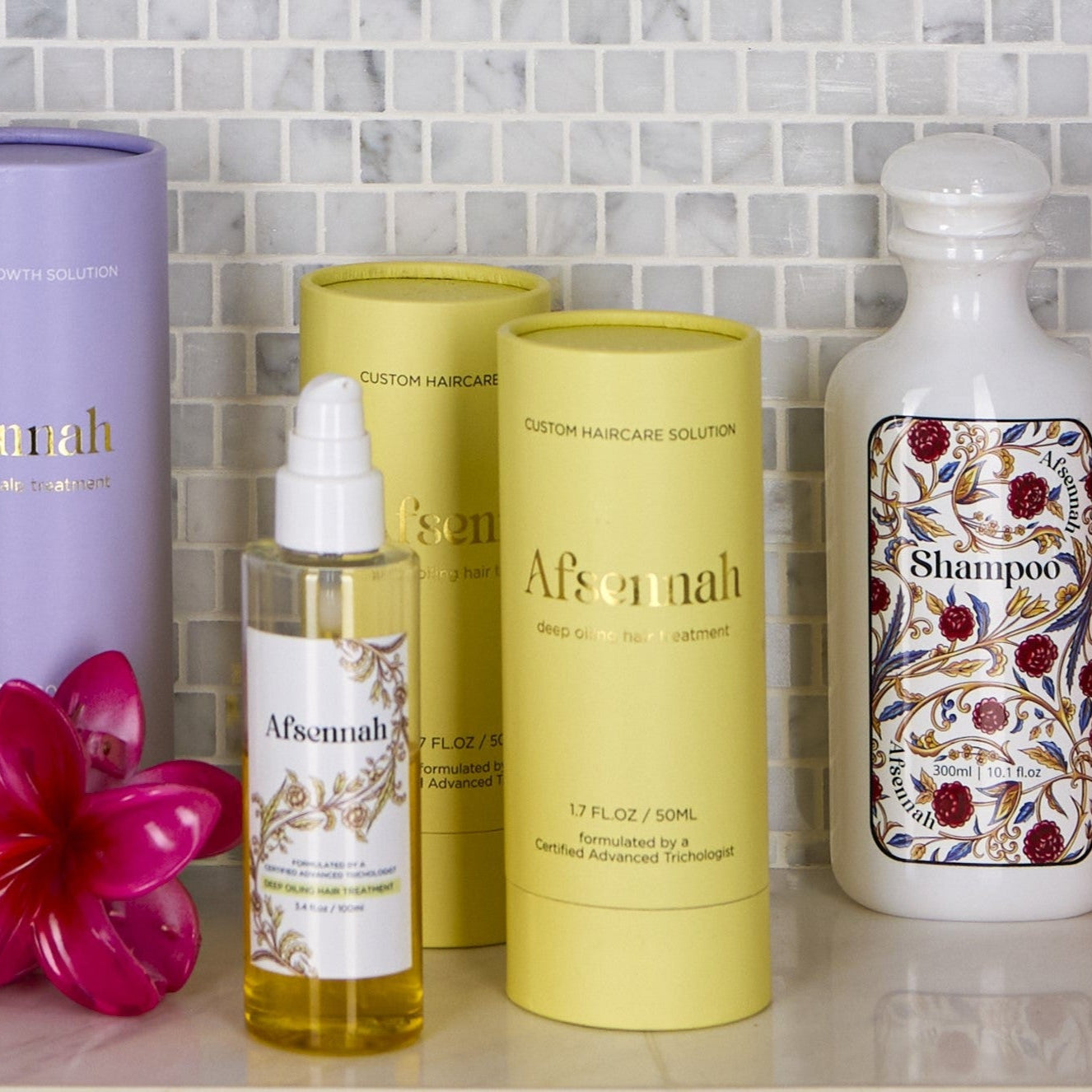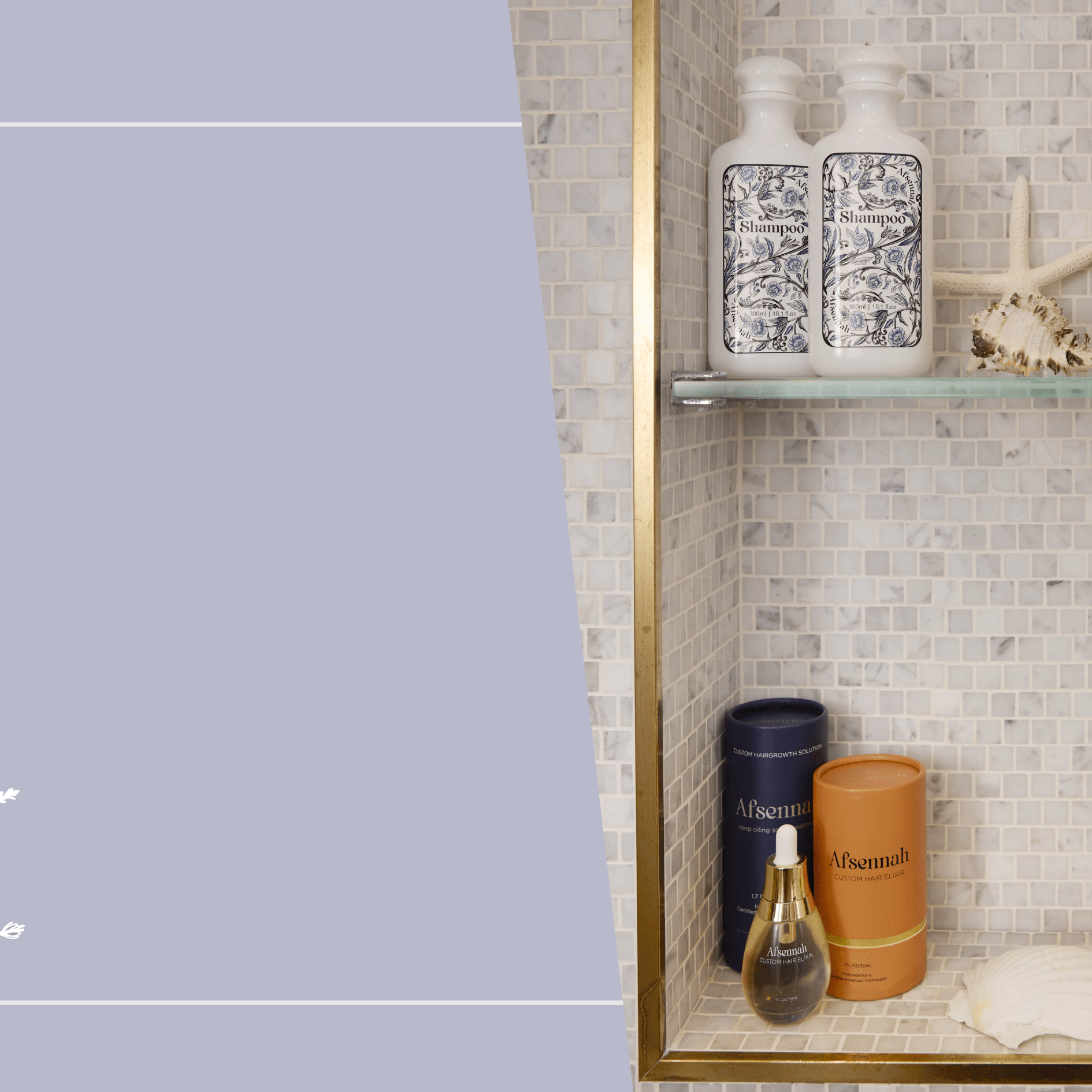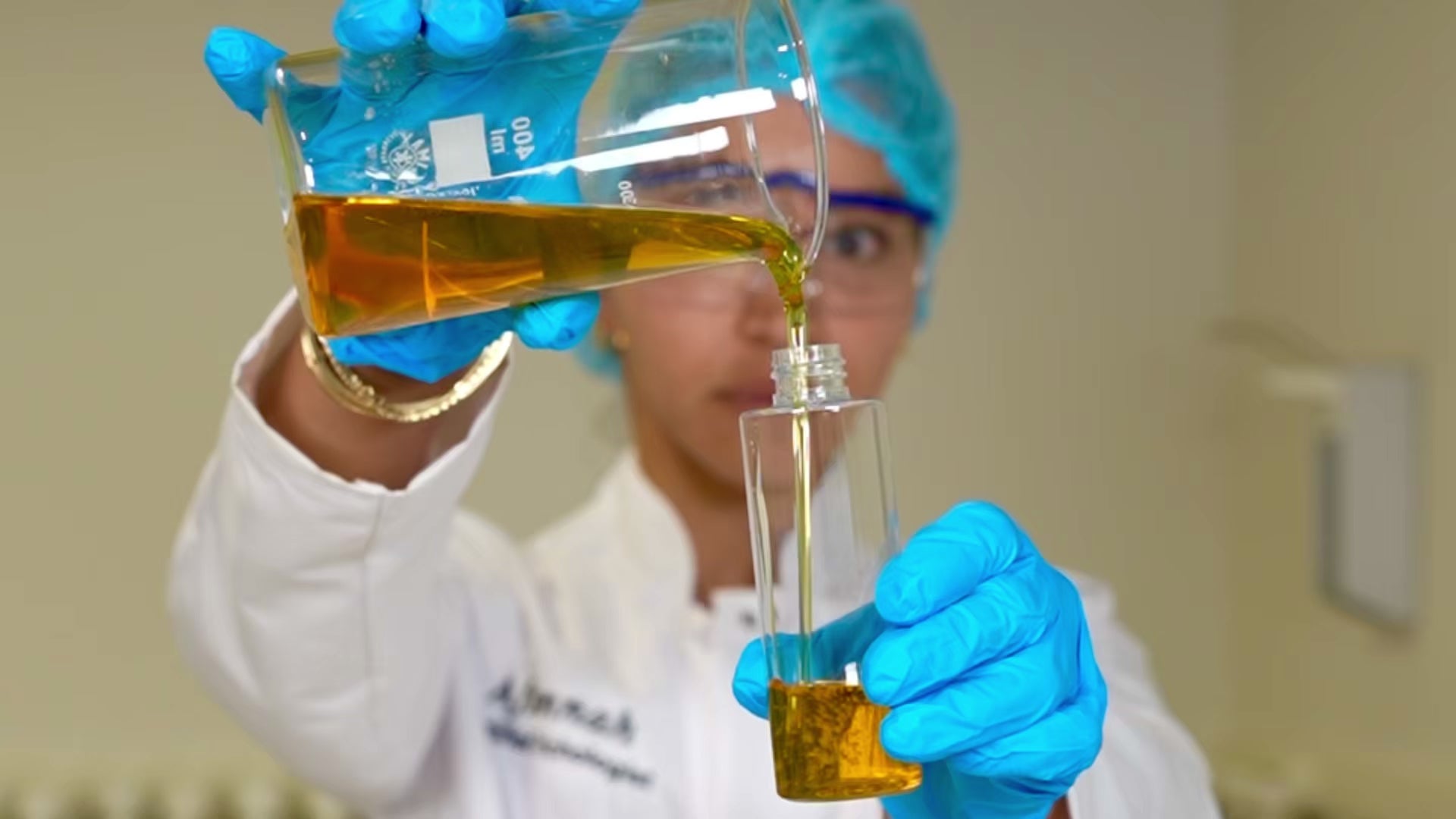Hair oils are more than just a trend — they’re a game changer for hair care. The benefits of hair oil have become a hot topic. Whether you want to hydrate dry ends or strengthen your strands, the right oil can transform your routine. But with so many options, how do you choose the best one for your hair?
With our extensive knowledge of custom hair oils, we’ve put together this guide. It covers everything you need to know about hair oils, their benefits, and how to use them.
What Are Hair Oils?
Hair oils are natural or plant-based oils that nourish, protect, and moisturize your hair. They work by penetrating your hair shaft, sealing in moisture. This creates a protective barrier against damage.
Different oils serve different purposes. Some strengthen weak strands, others smooth frizz. And many oils help prevent your hair from breaking. Whether you're looking for women's hair growth products or men’s hair growth products, the right hair oil can support healthier, stronger hair.
No matter your hair type, there’s a hair oil that can work for you.
Hair Oil vs. Scalp Oil
Hair oil and scalp oil are two different types of products. Hair oil is designed to nourish, smooth, and protect your hair strands, often focusing on hydration, shine, and frizz control. Scalp oil, on the other hand, targets your scalp health by addressing issues like dryness, dandruff, or excess sebum while promoting your hair’s growth.
What Are the Benefits of Hair Oils?
Hair oils offer multiple benefits, from hydration to heat protection. Here’s why you should include them in your routine.
1. Deep Moisturization
Hair oils fall into two categories: moisturizing oils and sealing oils. Moisturizing oils, like coconut and argan, penetrate your hair shaft and provide deep hydration. Sealing oils, like jojoba and almond, lock in moisture and prevent dryness. Together, they keep your hair soft, manageable, and hydrated for longer.
2. Stronger Hair
Many hair oils are rich in vitamins, minerals, and antioxidants. They strengthen your hair from the inside out, improving your follicle health and reducing breakage. By strengthening weak strands, they help your hair grow longer and healthier.
3. Softer Hair
Hydrated hair is softer, smoother, and more elastic. Oils coat your hair shaft. This makes your hair strands more flexible and less prone to snapping. Argan and olive oil boost elasticity. They make your hair feel silky and strong.
4. Reduced Dandruff
A dry scalp can lead to flakiness, irritation, and dandruff. A high-quality hair oil for dry scalp, like one that contains coconut oil or tea tree oil, will have antibacterial properties. These ingredients soothe inflammation and fight dandruff. Regular scalp oiling keeps your skin balanced and prevents dryness.
You can also use a special pre-wash scalp oil to soothe your scalp, reduce shedding, and help boost hair growth.
5. Help With Hair Growth
To be clear, no oil can guarantee hair growth. However, castor and rosemary oil are two ingredients that stimulate blood circulation, which helps to keep your hair follicles healthy. Healthier follicles can lead to stronger, fuller hair over time.
6. Protection Against Heat and Sun Damage
When you apply oil to your hair, it forms a protective barrier. This helps shield your strands from heat-styling tools like straighteners and curling irons. Oils also block harmful UV rays. This prevents sun damage that can dry out and weaken your hair.
7. Added Shine and Frizz Control
Oils replenish lost lipids in your hair. This boosts shine and makes your hair look glossy. If your hair looks dull or lifeless, applying a lightweight oil like argan or almond can instantly revive it. Oils also help smooth frizz and tame your flyaways. This makes styling your hair easier.
Different Types of Hair Oils
Not all hair oils work the same way. Some deeply hydrate your hair, while others protect or strengthen it. Choosing the right one depends on your hair’s needs.
-
Moisturizing oils: These penetrate deep into your hair shaft, restoring hydration and softness. Examples: Coconut, olive, avocado, argan.
-
Sealing oils: These lock in moisture and prevent dryness. Use it after conditioning for the best results. Examples: Jojoba, almond, castor, grapeseed.
-
Lightweight oils: These add shine and smooth your frizz without weighing your hair down. Examples: Argan, grapeseed, moringa, marula.
-
Strengthening oils: These contain proteins and antioxidants that protect and repair your weak strands. Examples: Castor, mongongo, black seed, rosemary.
How to Choose the Right Hair Oil for Your Hair
Not all oils work the same way, and choosing the right one depends on your hair type and needs. The key is to find an oil that complements your hair’s unique texture, porosity, and overall condition. Let’s look at how you can pick the right oils for your hair.
For Dry or Damaged Hair
Look for deeply hydrating oils that repair and restore moisture in your hair.
-
Best oils: Coconut, olive, avocado, argan
-
Benefits: These penetrate your hair shaft, nourishing dry strands from within.
In addition to oils, you can use a high-quality custom shampoo paired with a custom conditioner for your hair type. This makes your hair softer and reduces damage even more.
For Oily Hair
To combat oily hair, you have to first get your scalp oils under control. Lightweight, non-greasy oils help regulate sebum production in your scalp without making your hair look greasy.
-
Best oils: Jojoba, grapeseed, tea tree
-
Benefits: Jojoba mimics natural scalp oils, balancing oil production. Tea tree oil has antimicrobial properties that can soothe an oily scalp.
For Thin Hair
Use light oils that won’t weigh your hair down or make it look flat.
-
Best oils: Argan, almond, grapeseed
-
Benefits: These oils are light, and your hair absorbs them easily. This adds shine without making your hair greasy.
If you have experienced hair loss and thin hair after pregnancy, there are special postpartum hair loss oils that support regrowth.
For Thick or Coarse Hair
Choose rich, nourishing oils that keep your hair hydrated and manageable.
-
Best oils: Castor, shea, coconut, olive
-
Benefits: These oils coat your thick strands, reducing frizz and improving softness.
For Curly Hair
Curly hair needs extra moisture to maintain your hair’s definition and reduce frizz.
-
Best oils: Argan, jojoba, mongongo, avocado
-
Benefits: These oils deeply hydrate and enhance your curl shape without making your hair stiff.
For Hair Growth and Scalp Health
If you want to improve circulation in your scalp and support stronger hair growth, choose stimulating oils.
-
Best oils: Castor, rosemary, peppermint
-
Benefits: These increase blood flow to your scalp and promote stronger, healthier hair.
How to Oil Your Hair Correctly
Using hair oil the right way helps you get all the benefits without making your hair greasy or heavy. Here’s how to apply it the right way:
As a Pre-Wash Oil Treatment
Applying oil before washing protects your hair from drying out during shampooing.
-
Massage oil into your hair.
-
Leave it on for 30 minutes.
-
Shampoo as usual to remove excess oil.
Tip: Use a coffee rinse before using shampoo to wash out the oil thoroughly.
As a Post-Wash Light Oiling
If you want to add shine and reduce your frizz, apply a few drops of oil after washing.
-
Use one or two drops of a lightweight oil.
-
Rub it between your palms and smooth it over damp or dry hair.
-
Avoid applying too much to the roots to prevent greasiness.
Tip: If you want to distribute oil evenly, there are different types of hair brushes that can help spread the oil from your roots to your tips for better absorption.
For Overnight Deep Conditioning
If you want intense hydration, you can leave the oil in overnight.
-
Apply a generous amount to your hair.
-
Cover with a shower cap or towel.
-
Wash it out in the morning for soft, deeply nourished hair.
As a Heat Protectant
This gives your hair an additional layer of protection. Before heat styling, apply a light layer of oil to prevent damage.
-
Use a small amount and distribute it evenly through damp hair.
-
Style as usual, knowing your hair is protected.
Frequently Asked Questions
Is it good to put oil in your hair every day?
Applying oil daily can help hydrate dry hair, but too much can lead to buildup, so it’s best to adjust based on your hair type and needs.
How beneficial is hair oiling?
Hair oiling nourishes, strengthens, and protects your strands by locking in moisture, reducing breakage.
Do oils really help hair growth?
Certain oils can improve blood circulation to your scalp, creating a healthier environment for hair growth.
Which oil is more beneficial for hair?
The best oil depends on your hair type, but argan, coconut, jojoba, and castor oils are among the most widely beneficial for hydration and strength.

